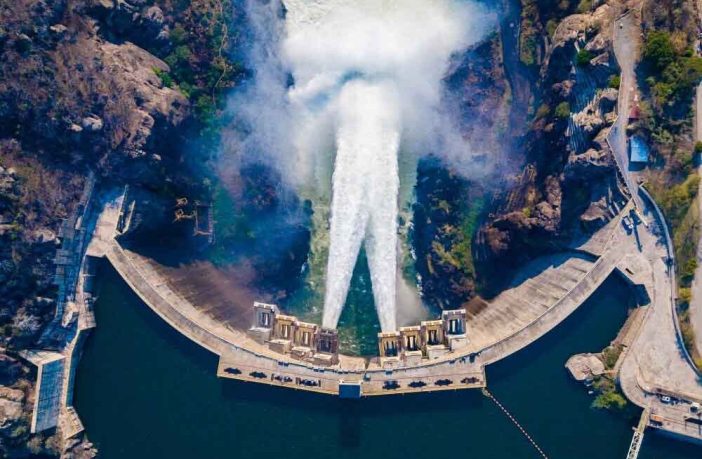- Bloomberg reports that Mozambique plans to end half a century of hydropower supply to South Africa’s state-owned electricity utility, raising risks for the continent’s most industrialized economy and threatening the viability of Africa’s second-biggest aluminium smelter.
In the country’s yet-to-be published energy transition strategy, a copy of which Bloomberg has seen, Mozambique details the plan to secure the 1,150 megawatts of power it sells to South Africa from its Cahora Bassa plant for its own use.
“The main short-term hydro priority is the repatriation of electricity from Hidroeléctrica de Cabora Bassa currently exported to South Africa” when the contract ends on Dec. 31, 2030, the government said in the strategy document. Mozambique’s energy ministry didn’t respond to a request for comment.
The decision creates a headache for both South Africa — which is battling power cuts that are holding back economic growth — and South32 Ltd., which operates the Mozal aluminium smelter near Mozambique’s capital, Maputo, but uses electricity bought from South African utility Eskom Holdings SOC Ltd.
South32 needs about 900 megawatts of electricity for Mozal’s output of aluminium, which the company markets as having been made with clean energy.
Because Mozambique’s grid isn’t linked nationally, Mozal — which produced 345,000 tons last year — can’t get direct power supply from Cahora Bassa ( HCB ).
Instead, the 2,075-megawatt plant — Africa’s third-biggest for hydropower — sends electricity along 1,400 kilometres (870 miles) of transmission lines to Eskom in South Africa, which then sells power to Mozal. The sales arrangement has been in place since 1979, when the last of the turbines was completed.
“HCB’s electricity is cheap and clean,” the government said in the strategy document. “Important decisions will have to be made regarding HCB’s clean-energy trading end-destination.”
Mozambique plans to push for its renewable energy to be used in industrial parks to add value to its production of so-called green minerals such as lithium and graphite.
Eskom said it’s pursuing the option of importing power from other sources. The utility scrapped a plan to import an additional 100 megawatts of electricity from Mozambique recently because of disagreements over price.
Read the full story HERE
Source: Bloomberg















